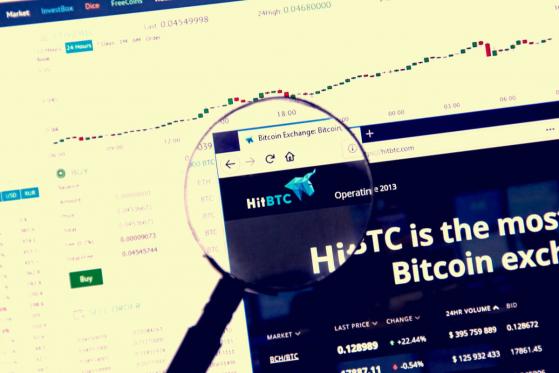HitBTC, one of the most active exchanges, is closing services for Japanese traders. The reason for this is that the exchange would not attempt to cover the strict requirements for a fully compliant exchange. Japan has been lenient, legalizing more than a dozen exchanges, but only after meeting strict requirements.
https://twitter.com/crypde/status/1002911935229095936
Recently, Binance also left Japan, seeking a new headquarters in Malta, to make use of more liberal regulations. HitBTC operates from an “unknown” location, but the HIT Solution Limited company is incorporated under Hong Kong jurisdiction.
HitBTC is ranked eight by trading volumes, currently handling the equivalent of more than $271 million. The exchange lists a whooping 678 assets, sometimes acting as the only ramp for obscure coins. Trading is heavily influenced by Tether (USDT) trading, which mimics fiat positions without handling actual cash. HitBTC trading of Bitcoin against the USDT is still just 20% of the volumes on Binance, but still significant.
HitBTC was seen as an exchange with a dubious reputation, especially after a hack in 2015. The exchange has also received many complaints for loss of funds, although back in 2015, the exchange stated that user funds were safe. Since then, there have been regular complaints of lost coins and withdrawal problems.
Yet HitBTC has been the go-to exchange for many ICOs, as well as lesser-known Bitcoin forks. The readiness for adding new assets makes HitBTC attractive, despite its past, as newcomers to the crypto market are only concerned with the potential for gains.
In the short term, the HitBTC news could add to the pessimism of the markets:
https://twitter.com/FxMinutes/status/1003539839256387585
Japan remains one of the powerhouses for crypto trading. Despite the crash of Mt. Gox, the infamous Bitcoin exchange, crypto enthusiasm remained strong in Japan. The Coincheck hack and loss of NEM funds also did not break the drive to trade crypto coins. Japan is well-equipped with exchanges handling cash deposits, and some local assets, such as MonaCoin (MONA) have an easy fiat on-ramp.
Additionally, Japan has the biggest share of Bitcoin trading, currently more than 55.7% of all BTC trades being against the Japanese Yen.
Permissions Pending
While exchanges in Japan keep functioning, the Japanese Financial Services Agency (FSA) has increased its scrutiny. In April last year, the Japanese government unrolled the Payment Services Act, legalizing crypto coins as a means of payment. However, the legislation required a registration and compliance procedure for all exchanges.
A total of 16 exchanges applied for a license, but reports show half of them have withdrawn their application. Currently, some exchanges are functioning without a complete legalization according to the Payment Services Act.
Due to the stricter regulations, Kraken has also withdrawn from the Japanese market, and Binance received another warning toward the end of May, for working without a license.
This article appeared first on Cryptovest
